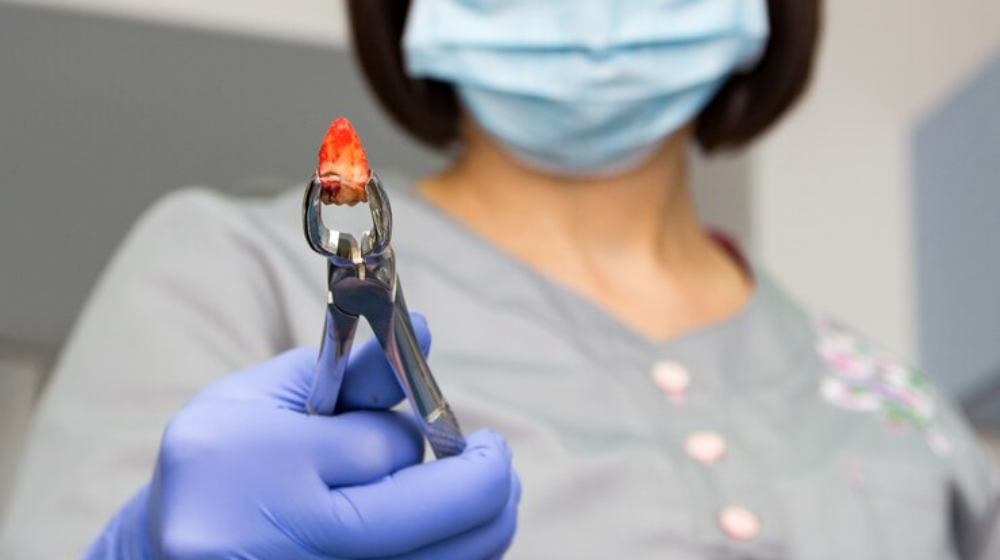Published on January 15, 2024

Do you find yourself wondering if your dental abscess will miraculously vanish after a tooth extraction? It’s a common belief that removing the problematic tooth can eliminate the abscess. In this blog, we’ll delve into the intricacies of tooth extraction and abscesses and whether this age-old belief holds water.
Understanding Dental Abscesses
Dental abscesses are pockets of pus that form in the teeth or gums due to bacterial infection. They can cause severe pain, swelling, and discomfort. The primary objective in dealing with an abscess is to eliminate the infection and prevent its spread.
The Role of Tooth Extraction
Tooth extraction is often recommended when a tooth is extensively damaged, decayed, or infected beyond repair. It’s a common dental procedure performed to alleviate pain and prevent the spread of infection to other parts of the mouth.
The Common Belief
Many believe that once a tooth hosting an abscess is extracted, the infection magically disappears. The logic is straightforward: remove the source, and the problem should vanish. However, is it that simple?
The Reality Check
While tooth extraction is a crucial step in addressing a dental abscess, it’s not a standalone solution. Extraction removes the infected tooth, but the abscess may persist if the surrounding infection hasn’t been adequately addressed.
The Abscess Aftermath
Immediately after a tooth extraction, patients are often prescribed antibiotics to combat any remaining infection. Proper oral hygiene practices become paramount to prevent the spread of bacteria and the formation of new abscesses.
Comparison with Alternative Treatments:
When dealing with a dental abscess, choosing the right treatment option is pivotal. While tooth extraction is a common approach, it’s essential to explore alternative treatments, particularly comparing it with root canal therapy.
Tooth Extraction
Pros
- Immediate Relief from Pain: Tooth extraction provides rapid relief from the acute pain associated with dental abscesses. The removal of the infected tooth eliminates the source of the pain, offering immediate comfort.
- Removal of the Infection Source: Extraction ensures the complete removal of the infected tooth, preventing the spread of the infection to other parts of the mouth. This can be crucial in halting the progression of the abscess.
- Suitable for Extensively Damaged Teeth: In cases where a tooth is severely damaged or decayed, extraction may be the most viable option. It allows for the removal of a compromised tooth, paving the way for potential replacements.
Cons
- May Require Additional Procedures: While extraction removes the infected tooth, additional procedures may be necessary for comprehensive resolution. This could include post-operative care, antibiotic therapy, and potential tooth replacement options.
- The Gap Left by the Extracted Tooth: Extraction leaves a void in the dental arch, and if the extracted tooth is not replaced, it can lead to issues such as misalignment and difficulty in chewing. Prosthetic options like dental implants or bridges may be considered.
Root Canal Therapy
Pros
- Preservation of the Natural Tooth: Root canal therapy aims to save the infected tooth by removing the pulp and cleaning the root canals. This allows for the preservation of the natural tooth structure, maintaining its functionality.
- Elimination of Infection Without Extraction: Unlike extraction, root canal therapy addresses the infection without removing the entire tooth. This can be advantageous in situations where preserving the natural dentition is a priority.
Cons
- Multiple Appointments May Be Needed: Root canal therapy often requires multiple appointments to complete the procedure. While it is a more time-consuming process than extraction, it allows for a more conservative approach to treating the abscess.
- Not Suitable for Severely Damaged Teeth: In cases where the tooth is severely damaged, or the infection is too extensive, root canal therapy may not be a viable option. Extraction might be the more practical choice in such situations.
Choosing The Right Treatment
The decision between tooth extraction and root canal therapy depends on various factors, including the extent of the infection, the condition of the tooth, and the patient’s overall oral health. While extraction offers immediate relief, it comes with the trade-off of losing a natural tooth. Root canal therapy, on the other hand, aims to preserve the tooth but requires a more extended treatment process.
The Importance Of Post-Extraction Care
After a tooth extraction, diligent post-operative care is crucial. This includes following the prescribed medications, maintaining good oral hygiene, and attending follow-up appointments. These steps must be revised to avoid complications and the persistence of the abscess.
The belief that a dental abscess disappears automatically after tooth extraction is only partially accurate. While extraction removes the infected tooth, additional measures are crucial to ensure the complete resolution of the abscess. Patients should be well-informed about the available treatment options and actively participate in post-operative care for a successful outcome. Remember, consulting with your dentist is key to determining the most suitable course of action for your specific case.
FAQs
1. Can a dental abscess go away on its own without extraction or treatment?
Ans: Although rare, spontaneous drainage of the abscess can occur. However, professional intervention is typically necessary for complete resolution.
2. Is tooth extraction the only solution for a dental abscess?
Ans: No, alternatives like root canal therapy exist. The choice depends on the severity of the infection and the condition of the tooth.
3. How long does it take for an abscess to heal after tooth extraction?
Ans: The healing time varies but typically ranges from a few days to a couple of weeks. Proper post-operative care accelerates the healing process.
4. Can a dental abscess return after tooth extraction?
Ans: If the surrounding infection isn’t adequately addressed, there’s a risk of a new abscess forming. Follow post-extraction care guidelines diligently.
5. Are there situations where tooth extraction is unavoidable for abscess treatment?
Ans: Yes, in cases of extensive damage or severe infection where preserving the tooth is not feasible, extraction becomes necessary for effective resolution.
